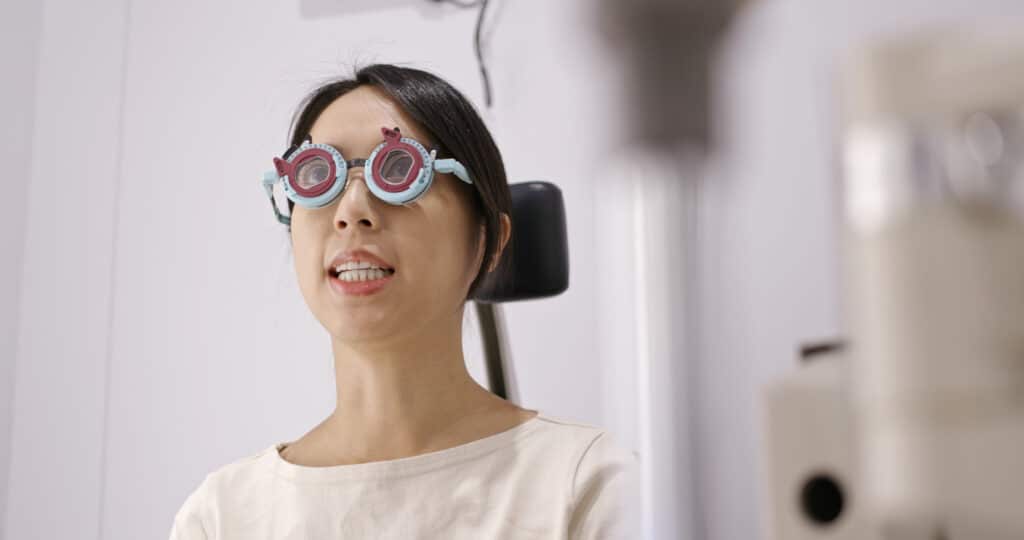Optometrists
“Vision is the gate to human consciousness, and optometrists are the gate-keepers.
Unlock your professional potential so that you can help every patient unleash their own.”Robert Lederman
Our patients are trying to engage in all aspects of seeing- from pursuits and saccades, to accommodation, eye-teaming, and processing, including visualization.
Let's ensure that our vision testing accurately measures their success in achieving optimal vision.
To Serve Mankind
I studied Optometry and Visual Science at The City University, London, graduating with Honours in 1987. The motto on the university’s coat of arms is ‘To Serve Mankind’, embodying profound commitment and obligation.
Delving into the etymology of the verb ‘to serve’, we find its roots in the Latin word ‘servire’, meaning ‘to be a slave or servant’.
While this might seem stark, it invites us to consider our relationship with our client on a whole different level.In the context of optometry I believe that to truly “Serve Mankind” we need to provide comprehensive care and offer the opportunity for our patients to find out how efficiently they meet all the visual demands of their life while providing the opportunity for them to be able to choose to improve the way they do seeing.
Understanding the Critical Role of Vision Therapy in Modern Optometry
"If you limit yourself to what's comfortable, you deny yourself what's possible." Dan Thurman
I came across a post on Facebook a couple of years ago that served as one of the catalysts for the creation of this website, which offers courses tailored to optometrists like yourself who are eager to enhance their patient care. The post recounted a parent’s inquiry about vision therapy to their eye doctor, only to receive a dismissive response, symbolized by a gesture toward the waste-paper bin. This anecdote underscores the need for greater awareness among eye care professionals about the potential benefits of optometric vision therapy.
While future studies will likely continue to explore the relationship between vision and cognitive functions such as attention, learning, and motor responses, as well as the effectiveness of optometric vision therapy in various conditions, there is already a wealth of papers and books available on the subject. It is disheartening to witness the persistence of gaps in knowledge within the field.
However, rather than passively observing these shortcomings, I chose to take proactive steps toward addressing them. This website serves as a platform for optometrists and other healthcare professionals to access resources, courses, and insights aimed at fostering a deeper understanding of vision therapy and its potential applications in patient care.

The Current Situation:
Good Vision = 20/20
Given that most patients equate good vision solely with 20/20 or 6/6 acuity, it’s unsurprising that their inquiries during eye exams typically revolve around these measures.
The result of this is that few of our patients are asking how accurately and quickly they move their eyes from word to word, or from line to line. Few ask if their eyes move with sufficient synchrony as they read books, or music, or even whether perhaps they might be able to develop this skill.



Consequently, few patients inquire about other aspects of their vision like the speed and accuracy of their eye movements while reading, or whether their eyes coordinate effectively during tasks such as reading texts or sheet music.
Similarly, parents may not realize that their child’s struggles with reading, writing or copying from the board or mental arithmetic could be related to inefficient visual skills and visual processing abilities.
The following quote is really one of my favorites:
"We seamlessly process objects, words, shapes, colors, movement and faces simultaneously within milliseconds with the mechanism rarely, if at all, flickering into our consciousness. Perhaps because of the apparent ease with which we are able to see, we live with the illusion that seeing is easy. ״
Cooper, S. A. (2012). Higher visual function: hats, wives and disconnections. Practical neurology, 12(6), 349-357.
It’s therefore unsurprising that while people readily seek coaching to improve their performance in sports or musical instruments, they are generally unaware that vision can also be trained and optimized. Vision plays a crucial role in numerous daily activities, and improving visual skills can lead to significant benefits in various aspects of life.
It’s time to change the conversation
This lack of awareness presents an opportunity for optometrists to change the conversation with their patients and provide more comprehensive vision care. By educating patients about the broader aspects of vision and offering solutions to improve visual skills, optometrists can make a positive impact on their patients’ life.
I am not under any illusion that all optometrists are looking to do this. Many are already so busy with so many critical aspects of eye testing, disease screening and co-management with ophthalmologists.
However, I know that many of you reading this are living with a burning desire to become better at addressing these issues more confidently. I know that many of you understand that your eye examination reveals only how well your patients do certain parts of seeing.

7-Week Course: One Step at a Time
Becoming fully competent in a short period of time in evaluating and treating all aspects of vision in all populations requires a very steep learning curve.
In fact, it is overwhelming for many. However, in my 7-week course, ”One step at a time: Mastering the Foundations” I’ll teach you in a way that will enable you to assess and treat more simple cases and start to witness and appreciate the potential that you have as an optometrist to change lives.
It’s the way I started in the 1990’s: one step at a time.
I will be offering more and more courses, tips and insights as your abilities grow. Whether it’s a simple home-based therapy approach monitored by you, or office-based therapy, courses on office management or practice building, I am dedicated to helping you get to where you want, one step at a time.
Want to learn more from an expert?
Book YOUR PLACE in my One Step at a Time 7-week course:
Mastering the Basics and embark on a journey toward transforming your practice and changing lives through even better vision care.
What they’re saying
Learn From a Vision Expert
Invite Robert Lederman to Speak
Invite Robert Lederman to your next meeting and learn about the critical role of vision in facilitating successful therapy outcomes. Understand more about vision beyond 20/20 and discover how to recognize when your client might unknowingly be struggling visually.
Robert Lederman has 35 years’ experience in clinical diagnosis and management of learning, attention, and performance-related vision issues. He has seen over 17,500 patients in his clinic, LedermanVision (ledermanvision.com)
Robert Lederman has been sharing what he knows about vision for 35 years. He is a sought-after lecturer, fascinating and enthralling audiences time after time as he shares his knowledge, research findings and clinical observations regarding the pervasive role of vision in our life, and all that can be done to improve the way we do seeing. He is a visiting lecturer at The Edmond J. Safra Brain Research Center for the Study of Learning Disabilities, Haifa University and has delivered over 400 presentations around the world about many aspects of vision. And he is ready to enrich your professional group too!


